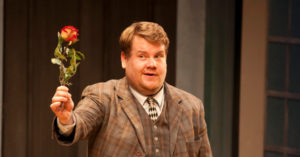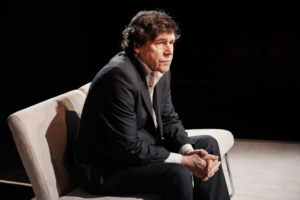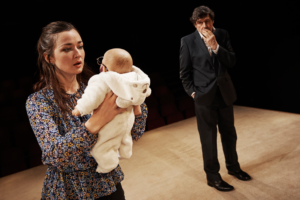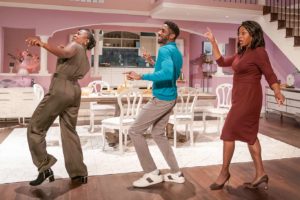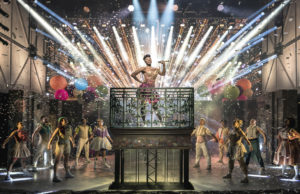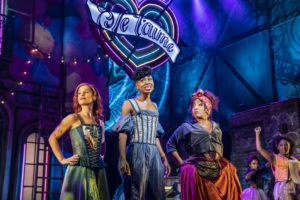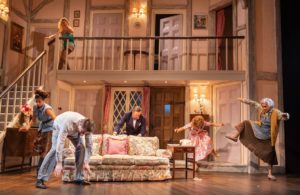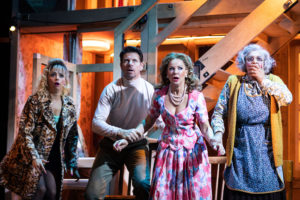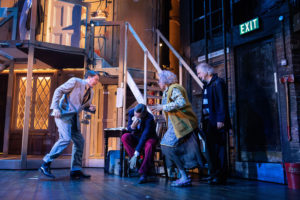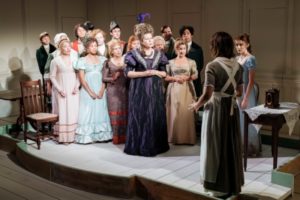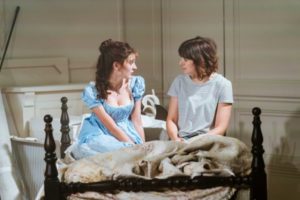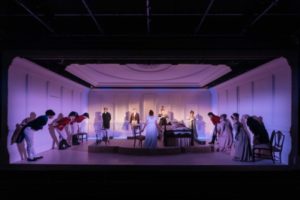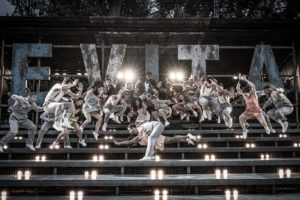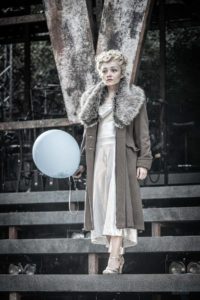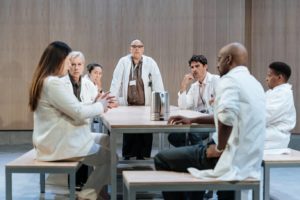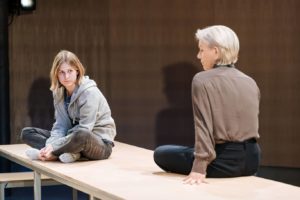Phoebe Waller-Bridge’s masterclass in scriptwriting and acting
★★★★★
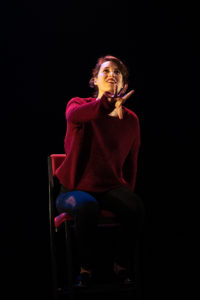
Last year Phoebe Waller-Bridge performed her original stage show Fleabag for the last time. Now she has generously made the NTLive recording available on demand online with the proceeds going to charity
This is the show that was first seen at the Edinburgh Fringe Festival in 2013 and which led to the two incredibly successful TV series.
First thing to say, the quality of this film is excellent, at least on the TV I saw it on. The performance takes place entirely centre stage where Phoebe Waller-Bridge sits on a chair, only occasionally standing up. She is picked out by lights and all around her is an inky blackness that fills three quarters of the screen.
It’s an apparently simple design by Holly Pigott but the suggestion of isolation and that this person is on the edge of a dark emptiness is hugely effective. And the film doesn’t mess with this. In fact, this has got to be as good as it gets if you’re not actually there, because it’s like a front row seat, it may even be better than being there.
What we get is the full impact of Phoebe Waller-Bridge’s excellent acting because she has to mime some of her past activities such as taking a photo in a toilet of her vagina and does impressions, for example imitating a guinea pig or pursing her lips like her rodent-mouthed lover. Her clipped plummy voice is gorgeous to listen to and offers a contrast to the earthy descriptions that come out of it, masturbating to Pornhub for example.
Because we’re all so familiar with the TV series, there is little to surprise or shock us now in the way that her explicit language and her casual even cynical attitude to sex must have done when this first hit the stage. The story contains many of the elements of the first series: the suicide of her best friend, her own guilt, her cold sister and her sister’s lecherous husband, the guinea pig-themed coffee shop and so on. But it’s different because it is a monologue and therefore incredibly intense.
I did notice that the Fleabag character is harder edged than on TV where she reveals more tenderness and good intentions even if they are usually misinterpreted.
Assuming you’ve seen the TV series, there isn’t the surprise revelation of why she is so depressed, why she has such a low sense of worth, and why she’s obsessed with sex, so often involving being abused, but the gradual revelation- in throwaway lines- still packs a ‘what did she say?’ punch. It is a master class in constructing and writing a script.
One of the great qualities of the writing in both this play and the subsequent TV series is the way it leads us into laughing at things that are quite shocking or reprehensible and then pulls the rug from under us for laughing- or vice versa. Because there is so much sadness in the midst of the comedy. ‘People make mistakes’ she says wistfully.
Although it’s a one-woman show, we shouldn’t underestimate the contribution of Phoebe Waller-Bridge’s long time collaborator and in this case director Vicky Jones and the subtle mood lighting by Elliott Griggs and the often graphic sound effects by Isobel Waller-Bridge that accompany the monologue.
You can see Fleabag on the sohotheatreondemand.com website until the end of May 2020 and on Amazon Prime. It will also be available to audiences in some other countries as well as on Amazon Prime in the US from 10 April for two weeks. In the UK, it costs £4.00 to watch, although you can choose to pay more and all proceeds will go towards the National Emergencies Trust, NHS Charities Together and Acting for Others, which supports theatre workers in times of need, and also towards grants of £2,500 to freelancers working in the UK theatre industry.
